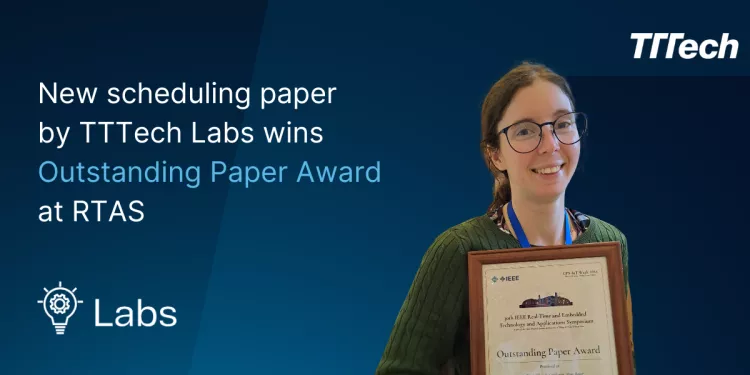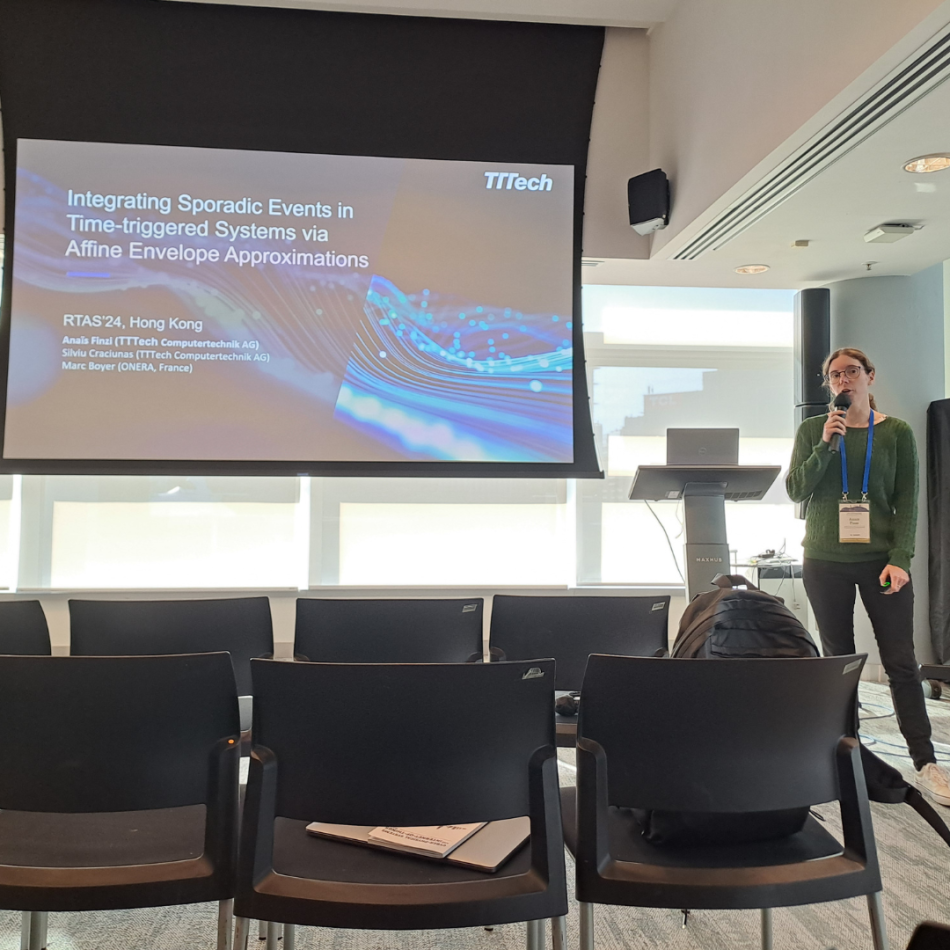
A new scientific paper coming out of TTTech Labs was accepted for publication at the 30th IEEE Real-Time and Embedded Technology and Applications Symposium (RTAS). Moreover, the paper has received one of four Outstanding Paper Awards at the conference.
The paper is titled “ Integrating Sporadic Events in Time-triggered Systems via Affine Envelope Approximations”. It was co-authored by TTTech Senior Software Engineer Anaïs Finzi, TTTech Principal Scientist Silviu Craciunas, and University of Toulouse researcher Marc Boyer.
RTAS is one of the top three venues worldwide for real-time systems research. The RTAS 2024 conference took place in Hong Kong from May 13-16, 2024. Out of 140 submitted papers, only 29 were accepted for publication, and four were awarded Outstanding Paper. The award is a testament to TTTech Labs’ sustained thought leadership in the areas of real-time embedded systems and time-triggered technology.
A new approach to scheduling
In a time-triggered computer system, tasks are initiated periodically at predetermined points in real time, following a static schedule table. In an event-triggered system, tasks are initiated as a consequence of the occurrence of a significant event. In such systems, task execution is not tied to a fixed time interval; it depends on the arrival of events. While both systems have their trade-offs, safety-critical systems, like those found in an airplane or car, for example, typically need to account for both time-triggered and sporadic event-triggered tasks. This is why a lot of research has gone into consolidating time-triggered and event-triggered tasks in a single core.

In their award-winning paper, the authors propose a new approach for creating schedules that handle both time-triggered (TT) tasks and sporadic event-triggered (ET) tasks during the design phase. “Synthetic and real-world test cases demonstrate that our novel method achieves better schedulability and faster schedule generation compared to other approaches, such as hierarchical scheduling”, Anaïs Finzi, who presented the paper in Hong Kong, explains. “We also extend our method to find the most favorable schedule for time-triggered tasks concerning event-triggered schedulability. This increases the system’s feasibility when event-triggered tasks are added or modified.”
Possible applications in automotive and aerospace industries
The present findings represent a breakthrough in scheduling, allowing to potentially optimize time and resources, while increasing compute power.
The solution has potential applications in all industries where both time-triggered and sporadic event-triggered tasks need to be considered. For example, in the automotive industry, where cars are becoming ever more autonomous, systems must account for a variety of sporadic events that are picked up by the vehicle’s sensors. In the aerospace industry, planes mainly deal with time-triggered tasks, but aviation systems must of course process event-triggered tasks in addition to allow for unforeseen events. The new scheduling method proposed in the paper makes it possible to process both kinds of tasks reliably and safely while making the system more flexible.
The team is not planning to stop here but is already thinking about expanding the concept: “The next step is to extend the scheduling approach to networks and multi-core,“says Anaïs.
We look forward to the continued evolution of this approach.
Learn more